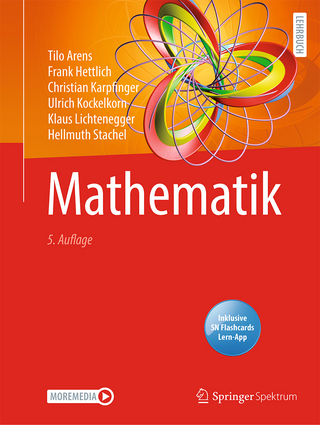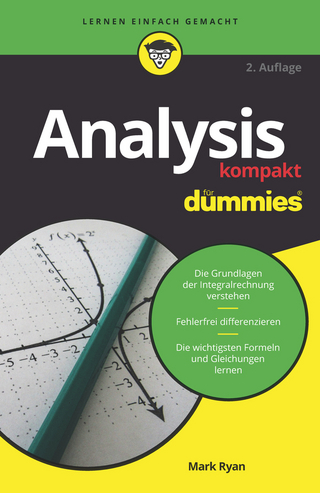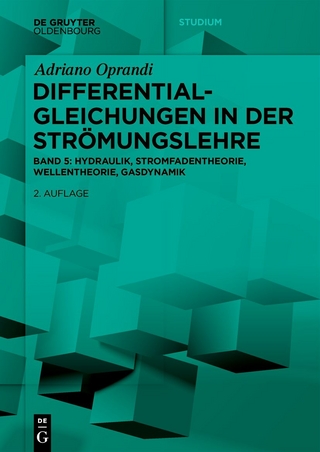
Topics in Spectral Geometry
Seiten
2024
American Mathematical Society (Verlag)
978-1-4704-7525-3 (ISBN)
American Mathematical Society (Verlag)
978-1-4704-7525-3 (ISBN)
A book for a graduate or an advanced undergraduate course on spectral geometry, starting from the basics but at the same time covering some of the exciting recent developments which can be explained without too many prerequisites.
It is remarkable that various distinct physical phenomena, such as wave propagation, heat diffusion, electron movement in quantum mechanics, oscillations of fluid in a container, can be described using the same differential operator, the Laplacian. Spectral data (i.e., eigenvalues and eigenfunctions) of the Laplacian depend in a subtle way on the geometry of the underlying object, e.g., a Euclidean domain or a Riemannian manifold, on which the operator is defined. This dependence, or, rather, the interplay between the geometry and the spectrum, is the main subject of spectral geometry. Its roots can be traced to Ernst Chladni's experiments with vibrating plates, Lord Rayleigh's theory of sound, and Mark Kac's celebrated question ""Can one hear the shape of a drum?"" In the second half of the twentieth century spectral geometry emerged as a separate branch of geometric analysis. Nowadays it is a rapidly developing area of mathematics, with close connections to other fields, such as differential geometry, mathematical physics, partial differential equations, number theory, dynamical systems, and numerical analysis.
This book can be used for a graduate or an advanced undergraduate course on spectral geometry, starting from the basics but at the same time covering some of the exciting recent developments which can be explained without too many prerequisites.
It is remarkable that various distinct physical phenomena, such as wave propagation, heat diffusion, electron movement in quantum mechanics, oscillations of fluid in a container, can be described using the same differential operator, the Laplacian. Spectral data (i.e., eigenvalues and eigenfunctions) of the Laplacian depend in a subtle way on the geometry of the underlying object, e.g., a Euclidean domain or a Riemannian manifold, on which the operator is defined. This dependence, or, rather, the interplay between the geometry and the spectrum, is the main subject of spectral geometry. Its roots can be traced to Ernst Chladni's experiments with vibrating plates, Lord Rayleigh's theory of sound, and Mark Kac's celebrated question ""Can one hear the shape of a drum?"" In the second half of the twentieth century spectral geometry emerged as a separate branch of geometric analysis. Nowadays it is a rapidly developing area of mathematics, with close connections to other fields, such as differential geometry, mathematical physics, partial differential equations, number theory, dynamical systems, and numerical analysis.
This book can be used for a graduate or an advanced undergraduate course on spectral geometry, starting from the basics but at the same time covering some of the exciting recent developments which can be explained without too many prerequisites.
Michael Levitin, University of Reading, United Kingdom. Dan Mangoubi, The Hebrew University, Jerusalem, Israel. Iosif Polterovich, Universite de Montreal, QC, Canada.
Strings, drums, and the Laplacian
The spectral theorems
Variational principles and applications
Nodal geometry of eigenfunctions
Eigenvalue inequalities
Heat equation, spectral invariants, and isospectrality
The Steklov problem and the Dirichlet-to-Neumann map
A short tutorial on numerical spectral geometry
Background definitions and notation
Image credits
Bibliography
Index
| Erscheinungsdatum | 03.04.2024 |
|---|---|
| Reihe/Serie | Graduate Studies in Mathematics ; 237 |
| Verlagsort | Providence |
| Sprache | englisch |
| Maße | 178 x 254 mm |
| Gewicht | 367 g |
| Themenwelt | Mathematik / Informatik ► Mathematik ► Analysis |
| Mathematik / Informatik ► Mathematik ► Geometrie / Topologie | |
| ISBN-10 | 1-4704-7525-1 / 1470475251 |
| ISBN-13 | 978-1-4704-7525-3 / 9781470475253 |
| Zustand | Neuware |
| Haben Sie eine Frage zum Produkt? |
Mehr entdecken
aus dem Bereich
aus dem Bereich
Band 5: Hydraulik, Stromfadentheorie, Wellentheorie, Gasdynamik
Buch | Softcover (2024)
De Gruyter Oldenbourg (Verlag)
59,95 €


